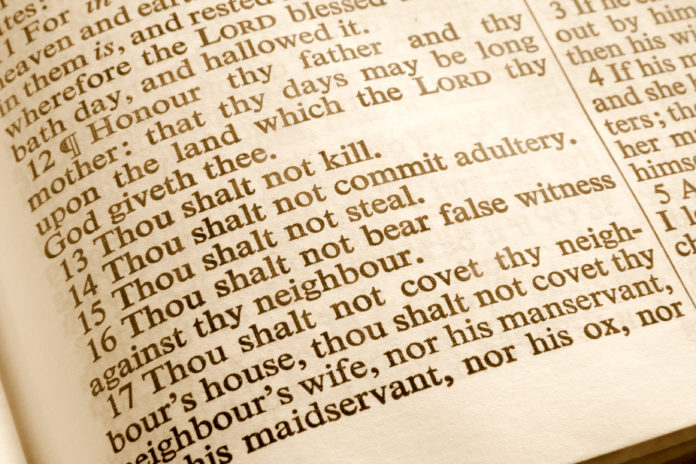Psalm 22: Jesus’s Crucifixion Predicted
Psalm 22 stands as one of the most astounding prophetic texts in the Bible. Written by King David roughly a thousand years before the birth of Jesus of Nazareth, it describes with stunning accuracy the means of execution and several other significant details surrounding Jesus’s death.
For example, the psalm depicts aspects of crucifixion at least a few hundred years before this horrific method of execution was devised and long before it was employed by the Romans. A number of additional prophecies that appear in the passage are equally striking, if not more so.
According to Psalm 22, the man on the cross is more than a man. Verses 3–5 address him as Israel’s God:
Yet you are enthroned as the Holy One;
you are the one Israel praises.
In you our ancestors put their trust;
they trusted and you delivered them.
To you they cried out and were saved;
in you they trusted and were not put to shame.
This passage forecasts what God would accomplish through the Messiah’s death—the ultimate redemption, deliverance, salvation from sin and death for all who put their trust in him. Verse 9 affirms that the crucified One was perfectly obedient to God from birth:
Yet you brought me out of the womb;
you made me trust in you, even at my mother’s breast.
No one, not even his mother or brothers, was able to point out any sin in the life of Jesus. Jesus appeared in front of a large crowd that included his enemies and his family and stated, “Can any of you prove me guilty of sin?” (John 8:46).
The psalmist envisions many of the specific physiological effects medical doctors of today would associate with death by crucifixion—asphyxiation and heart failure, along with extreme dehydration. The reference to each of these effects (in verses 14–15, 19) is clear in the gospel accounts, including his thirst:
I am poured out like water,
and all my bones are out of joint.
My heart has turned to wax;
it has melted within me.
My mouth is dried up like a potsherd,
and my tongue sticks to the roof of my mouth;
. . . All my bones are on display.
The fact that these well-known physiological effects of execution by crucifixion were predicted long before crucifixion was invented or employed makes the predictions all the more remarkable. John 19:28 records that, while Jesus was dying on the cross, he said, “I am thirsty.”
All four gospels, as well as extrabiblical texts, record that Jesus’s executioners stripped him before nailing him to the cross. John 19:23–24 tells us that these individuals proceeded to divide his clothes into four shares and gamble for the one article of clothing that would be ruined if torn: Note the psalmist’s prediction in verses 17–18:
People stare and gloat over me.
They divide my clothes among them
and cast lots for my garment.
The gospels also record that the crucifixion took place in a very public place, exposing Jesus to the ridicule of Jewish religious leaders and countless passersby, in addition to the soldiers’ mockery. The psalmist goes so far as to foretell exact words (verses 7–8):
All who see me mock me;
They hurl insults, shaking their heads.
“He trusts in the Lord,” they say,
“let him deliver him,
since he delights in him.”
These words of insult are translated into English from the biblical Hebrew text. Another text, translated from New Testament Greek to English in Matthew 27:42, reveals the Jewish leaders’ words: “He saved others; let him save himself if he is the Christ, the chosen of God.” In Mark 15:32, the words of the chief priests and teachers of law are translated this way: “He saved others, but he can’t save himself! Let this Messiah, the king of Israel, come down now from the cross, that we may see and believe.” Luke 23:37 records the verbal jabs of the Roman soldiers who crucified Jesus: “If you are the king of the Jews, save yourself!”
In one easily missed prophetic detail, King David identifies the Messiah’s executioners as Gentiles. Although the Jewish leaders condemned Jesus to death, they had no authority to carry out the penalty. The Roman governor, Pilate, held that authority, but he strongly resisted acting upon it. After all, Romans took great pride in the fairness of their court system. Only when Pilate saw the potential for a massive riot did he relent, ordering his soldiers to carry out the execution. Note, here, that dogs (verse 16) was a term used by first-century Jews in referring to Gentiles. Note, too, that the psalmist declares the means of execution: the piercing of the victim’s hands and feet.
Dogs surround me,
a pack of villains encircles me;
they pierce my hands and my feet.
The psalmist predicts that there would be no one to help the Messiah during his traumatic execution and that he would be surrounded by powerful enemies (verses 11–12):
Trouble is near
and there is no one to help.
Many bulls surround me;
strong bulls of Bashan encircle me.
History and the New Testament gospels record that during his crucifixion Jesus was surrounded by powerful Roman soldiers and threatening Jewish religious leaders who prevented anyone from providing assistance or comfort to Jesus, other than the man who was briefly conscripted to carry Jesus’s cross.
Like so many of David’s psalms, this one ultimately turns from deep sorrow and grief to ecstatic joy. Verses 27–31 declare that people from all over the world—even future generations—will hear about the events foreshadowed in Psalm 22. Not only will they hear, but they will spread understanding of the meaning of these events to all people, and the response will be great:
All the ends of the earth
will remember and turn to the Lord,
and all the families of the nations
will bow down before him. . .
Posterity will serve him;
future generations will be told about the Lord.
They will proclaim his righteousness,
declaring to a people yet unborn:
He has done it!
Today we see faithful followers of Jesus Christ in every nation and region of the world. Since Jesus’s death and resurrection, each successive generation has spread the gospel of our redemption to successively greater numbers of people and places, and with every succeeding generation more people have responded in faith.
Jesus’s Words on the Cross
The New Testament gospels record the words of Jesus as he was dying on the cross. Matthew 27:46 and Mark 15:34 state that after three hours on the cross, Jesus cried out in a loud voice, “My God, my God, why have you forsaken me?” Mark 15:37 and John 19:30 also report that Jesus said, “It is finished,” then bowed his head and breathed his last.
Psalm 22 begins with the words, “My God, my God, why have you forsaken me?” Psalm 22 ends with the words, “He has done it” (NIV and ESV). Thus, it seems possible that during the last moments before his death on the cross, Jesus was actually quoting from Psalm 22. Given the events of the previous hours, this recitation by Jesus would have had a dramatic impact on all observers familiar with Psalm 22, certainly on the Jewish ones.
Centurion’s Confession
The New Testament accounts of Jesus’s crucifixion describe how one of its witnesses was especially moved. Mark 15:38 comments, “When the centurion, who stood there in front of Jesus, saw how he died, he said, ‘Surely this man was the Son of God!’”
The centurion was the officer in charge of the soldiers who conducted the executions of Jesus and the two thieves alongside Jesus. Like the centurion whose servant was healed by Jesus (Luke 7:1–10), this centurion proclaimed faith in God and may have been familiar with Psalm 22.
If this centurion was, in fact, familiar with Psalm 22, he would have recognized that the specific prophecies of Psalm 22, written a thousand years earlier, were being fulfilled before his eyes. This recognition surely would have had a profound impact on him, an effect strong enough to prompt his public declaration of Jesus as God’s Son.
Our Confession
When we recognize that all the prophecies in Psalm 22 have been fulfilled, in detail, in some cases to the very word and letter, the implications are difficult to deny. We are obliged to acknowledge that the probability of all Psalm 22’s predictions about the execution of the Messiah being fulfilled without God miraculously and supernaturally intervening is unimaginably remote. Thus, if we respond rationally, we are compelled to echo the centurion, declaring, “Surely this Jesus of Nazareth was the Son of God!” How can we do other than to receive his offer of forgiveness from all our sin, based on his payment through death on the cross, and place him in charge of our lives as Lord and Master.






